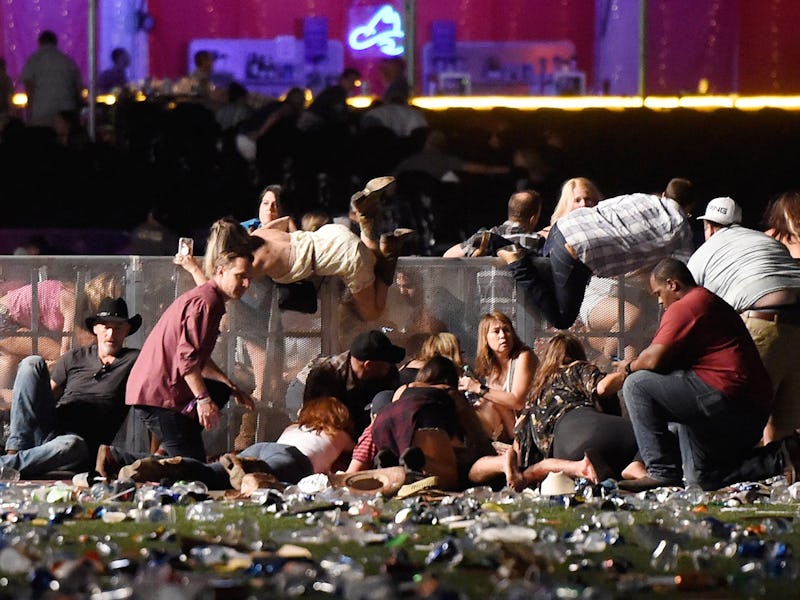Are Automatic Weapons Legal or Illegal in U.S.? It's Complicated
A look at automatic weapon laws in the wake of Sunday's mass shooting.

Two days after the worst mass shooting in modern American history, police still had not said what kind of guns the shooter used to kill at least 59 people at a Las Vegas music festival. The answer to that question may have ramifications as to what sort of legal changes, if any, come next.
Initially speculation held that suspect Stephen Paddock used a fully automatic weapon to shoot at a crowd from his hotel room. Automatic weapons are designed to continuously fire ammunition with just one push of the trigger, and several recordings taken during the shooting capture the sounds of rapid gunfire indicative of such weapons.
Police later confirmed, however, that Paddock had possession of tools that would allow him to modify semi-automatic weapons to shoot continuously.
Although restrictions do exist on buying, selling, and owning fully automatic weapons — also commonly referred to as machine guns — these firearms are technically still legal. Some advocates of gun rights, however, have claimed the opposite in arguments.
“We of course don’t want to have automatic weapons, and that’s already illegal in this country to have automatic weapons,” Republican presidential candidate Mitt Romney said in a 2012 debate.
That claim wasn’t accurate then, nor is it true five years later.
The Hughes Amendment, passed in 1986, prohibited the manufacture of any new machine guns from then on. However, automatic guns owned before then are legal as long as they’re registered and approved by the federal Bureau of Alcohol, Tobacco, Firearms and Explosives.
AR-15 rifles on sale in Virginia in 2016.
Gun advocates have argued that even those restrictions make automatic weapons “illegal.” But around a half million machine weapons still exist as of February 2016, according to the federal ATF registry. Additionally, a federal law banning certain semi-automatic guns and “large capacity” ammunition magazines was signed in 1994 under President Bill Clinton. But this Federal Assault Weapons Ban expired back in 2004 and has yet to be reinstated.
Individual states are allowed to regulate their gun laws even further. But Nevada, the site of Sunday’s attack has some of the most lax laws.
Gun owners — those both with handguns and bigger rifles and shotguns — do not need a license to buy and own their firearms, and don’t need to register their guns with the state, according to the National Rifle Association. The state does not have any restrictions on machine guns and assault weapons, or on background checks for gun owners.
Under federal law, anyone looking to purchase a gun must submit fingerprints and photographs to the ATF and submit to an FBI background check. However, Nevada’s attorney general said he would not enforce or implement the requirement for universal background checks. This essentially cancels out the federal effort to restrict automatic weapons and allows for gun sales to take place freely between private citizens.
This post was updated on October 3.